Department News
Department News
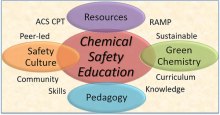
Chemistry contributes to special issue on chemical safety education
Posted
The Department of Chemistry has a strong presence in the January Journal of Chemical Education's special issue, Chemical Safety Education: Methods, Culture, and Green Chemistry.
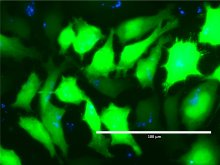
Researchers discover new way to deliver DNA-based therapies for diseases
Posted
University of Minnesota Twin Cities researchers in the labs of Professor Renee Frontiera and Professor Theresa Reineke have created a new polymer to deliver DNA and RNA-based therapies for diseases. For the first time in the industry, the researchers were able to see exactly how polymers interact with human cells when delivering medicines into the body. This discovery opens the door for more widespread use of polymers in applications like gene therapy and vaccine development.

Professor Pomerantz to develop epigenetic therapies for aggressive brain cancers
Posted
Professor William Pomerantz' lab has received a $100,000 grant from the Humor to Fight the Tumor Foundation to support its chemical epigenetics research project to develop new inhibitors for the treatment of diffuse intrinsic pontine glioma.
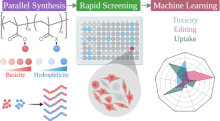
Efficient polymer-mediated delivery of gene-editing RNP payloads
Posted
Professor Theresa Reineke’s research on genome-editing payloads continues. An article on the latest break-through research, Efficient Polymer-Mediated Delivery of Gene-Editing Ribonucleoprotein Payloads through Combinatorial Design, Parallelized Experimentation, and Machine Learning, has been published in ACS Nano.

Professor Pierre receives NIH grant to help people with chronic kidney disease
Posted
Professor Valérie Pierre has received a five-year, $2 million National Institutes of Health National Institute of Diabetes and Digestive and Kidney Diseases grant to focus on "polymer supported phosphate-receptors for the treatment of hyperphosphatemia."
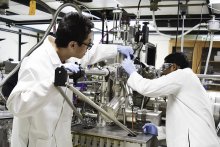
University of Minnesota receives $18M grant for materials research
Posted
The University of Minnesota College of Science and Engineering announced that the National Science Foundation (NSF) has awarded $18 million in renewed funding over the next six years for the University’s Materials Research Science and Engineering Center (MRSEC). The University of Minnesota MRSEC program is among only 11 centers nationwide receiving funding for successful collaborative research.
Article on DMRG-PDFT selected for Chemical Science 'best of' collection
Posted
Chemical Science has selected the article, “Density Matrix Renormalization Group Pair-Density Functional Theory (DMRG-PDFT): Singlet-Triplet Gaps in Polyacenes and Polyacetylenes," for its themed collection, Most Popular 2018-2019 Physical and Theoretical Chemistry Articles.
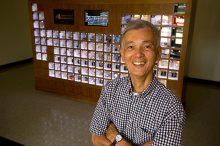
'Metalloenzyme Mastery' features Professor Que
Posted
A feature article, "Metalloenzyme Mastery," published in the July 29, 2020, edition of Chemistry World highlights the work of Regents Professor Lawrence Que Jr.
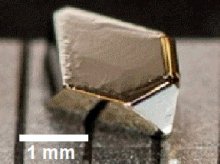
‘Fool’s gold’ may be valuable after all
Posted
In a breakthrough new study, scientists and engineers at the University of Minnesota have electrically transformed the abundant and low-cost non-magnetic material iron sulfide, also known as “fool’s gold” or pyrite, into a magnetic material.

14 undergraduates participate in summer fellowship program
Posted
The Department of Chemistry has offered 14 undergraduate students the opportunity to participate in an abbreviated, five-week, full-time research opportunity through its Summer Research Program.